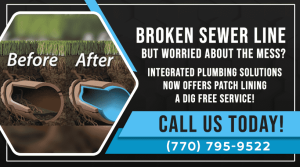Your home’s septic tank contains beneficial bacteria that help breakdown waste, making the water safe to leach into the ground. To keep the septic system functioning, you’ll need to protect these tiny living organisms from harmful chemicals and non-biodegradable material.
How Bacteria Work
Anaerobic bacteria, which don’t require oxygen, have the important role of eating and excreting waste in your septic system. This decomposition process transforms waste into gases and liquids, ultimately making safe effluent that’s discharged to the drain field.
Related: Considering a Home With a Septic Tank? Here’s Everything You Need to Know
Don’t Upset the Balance
These bacteria thrive on organic matter in a somewhat delicate ecosystem. Without them, you’d have to pump out your septic tank more frequently and your drainfield would be a smelly health hazard. So, do what you can to help them help you.
To keep the bacteria healthy, avoid using large amounts of antimicrobial cleaning products. These include:
- Sanitizing wipes: With COVID concerns, we’re all stocking up on sanitizing wipes and are diligently wiping down surfaces. Do not — we repeat — do not flush these wipes. Throw them in the trash instead. Not only will sanitizing wipes kill the helpful bacteria in your septic system, but also the material won’t break down (see also tampons, baby wipes, and cotton balls, etc.) What doesn’t decompose will have to be pumped out.
- Laundry products: Avoid laundry detergents and additives that claim to kill 99% of bacteria. In large amounts, antimicrobial products can harm septic bacteria. Instead, use mild detergents. If your washing machine has a designated sanitize cycle, which uses an extra-hot wash to kill bacteria on your clothes, use it instead of harsh chemicals.
- Liquid drain cleaners: These products are loaded with corrosive chemicals that not only endanger bacteria populations but can also do major damage to your plumbing system with frequent use.
Go Easy on the Garbage Disposal
Keep in mind that bacteria can eat only so much so fast. One major, and often unnecessary, a contributor to the volume of stuff in your septic system is the garbage disposal. While this appliance makes clean-up convenient, it can overwhelm the septic system with too much organic matter. People who frequently use the garbage disposal can expect to have their system tanks pumped twice as often.
Use the Right Toilet Paper
All toilet paper is safe for septic systems. But if you want to go the extra mile, consider “septic safe” toilet paper certified by the National Sanitation Foundation.
It’s biodegradable, which means it will dissolve faster, taking up less space in the tank.
Bottom line: Keep your septic system operating efficiently by being careful of what you put down your drains. If you run into any issues, turn to the pros at Integrated Plumbing Solutions. To schedule your appointment call (678) 627-1067.

